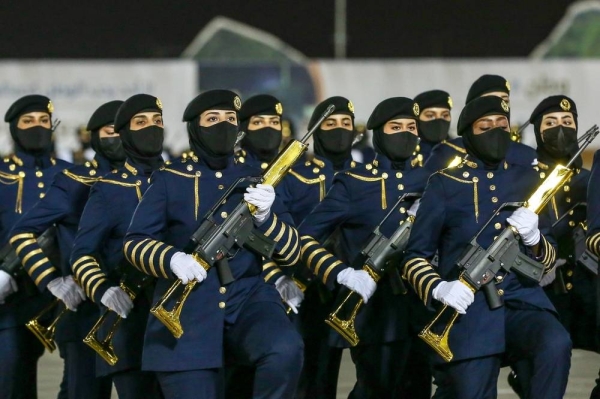
Year-long campaign to end online harassment against women journalists proves major success
DUBAI:Women have long faced discrimination in the workplace with issues ranging from unfair pay gaps to unconscious biases.
And the switch to remote working due to the coronavirus disease (COVID-19) pandemic has brought its own set of challenges, especially for women as they struggle juggling home and work responsibilities.
In addition, women working online have also had to contend with sexual harassment, misogyny, hate speech, trolls, and other forms of abuse.
According to a study by the International Center for Journalists and the Tow Center for Digital Journalism at Columbia University, 20 percent of participants said their experience of online abuse, harassment, threats, or attacks had been “much worse than usual” after the COVID-19 outbreak.
In the region, a 2020 study by Arab Barometer found that there was a 56 percent decrease in the odds of being an internet user for women as opposed to men. Women faced “immense barriers to full participation in the digital sphere” reflective of issues in real life, the survey reported.
“Cultural norms, gender roles, biases, and stereotypes often dissuade and even prevent women from accessing the internet, gaining digital literacy, and participating in the digital economy or society,” the report added.
While the online environment was precarious for all women, female journalists were discovered to be among those who faced the most online abuse, including intimidation and threats.
In response to the trends and to protect female journalists from online abuse, Arab Reporters for Investigative Journalism in partnership with the Facebook Journalism Project, WAN-IFRA’s Women in News, the International Women’s Media Foundation, and the International Research and Exchanges Board, along with the support of the German Federal Foreign Office, last year launched a 12-month project, titled “I Will Not Stay Silent,” targeting the Arab journalistic community.
The IWNSS multidisciplinary project, was set up to create an inclusive digital public space free of exclusion, sexism, discrimination, and all other forms of injustice, for women and men in the Middle East and North Africa region.
Mohammed Omar, Facebook’s MENA news partnerships manager, said: “Attacks such as online bullying, doxing, threats, and sexual harassment are serious problems that have only become more prominent and coordinated in recent years.
“By taking part in the online webinars, journalists, especially women journalists, are empowered to come forward and speak in a safe space about the problems they have faced at work,” he added.
As part of the program, 13 webinars were held addressing topics such as how to deal with privacy issues, gender terms in media, gender balance in media coverage, and sexual harassment in the newsroom and on the internet.
The webinars reached 1.3 million people on Facebook with more than 2,000 journalists joining in via video conferencing. The 13th webinar, which was an open discussion for all participants, reached 92,000 people and had 953 participants on the platform.
Rawan Damen, director general of ARIJ, said: “With such a knowledgeable, supportive consortium, we were able to launch and execute IWNSS, which is much needed to protect the ecosystem of investigative journalism in particular and journalism in MENA as a whole.”
In addition to the webinars, IWNSS held live training, one-on-one clinics, and offered extra resources and tools to help journalists.
The ARIJ academy and Facebook also held a free online diploma program between June and September for 20 trainees, targeting media professionals, especially female journalists and HR professionals, and, said the ARIJ, “anyone professionally interested to have the tools to deal with various forms of misuse of authority in the work environment and beyond.”
Damen added: “The uniqueness of this project is not only in its regional focus but in its use of five different methods to achieve a comprehensive result; wide awareness, in-depth, focused live training, one-to-one clinics, self-based tools, and digital campaigns.”
Moving forward, IWNSS has launched 200 digital one-to-one clinics to provide the necessary tools to help journalists project themselves in the digital world. The clinics are free of charge and those interested can apply through ARIJ.












